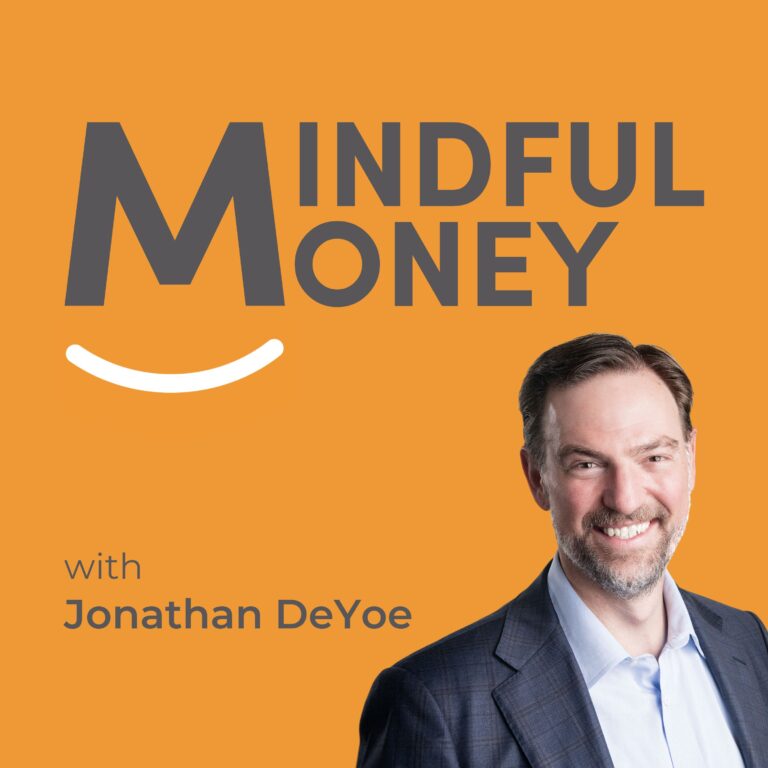Investing can often feel like navigating a vast, unpredictable ocean. Markets rise and fall, news headlines shift sentiment, and even seasoned investors can find themselves questioning their decisions.
In such a turbulent environment, finding a guiding principle can be invaluable. There was a book I read to my kids when they were young, Zen Shorts by Jon J. Muth, that introduced just such a principle in “A Farmer’s Luck” – a story derived from an old Zen parable. The story introduces a mindfulness concept — that no feeling or thought is final.
All sensations, feelings, and thoughts, as it turns out, are temporary. They arise in a moment, they stay around awhile, and then they fade (usually as something else takes their place).
The notion of impermanence is very important to mindfulness, and it is expressed in this story by responding to experiences with a curious “maybe.”
The Parable of the Farmer and His Son
Once upon a time, in a small village, there lived a wise old farmer. One day, his horse ran away. Upon hearing the news, his neighbors came to visit. “Such bad luck,” they said sympathetically. “Maybe,” the farmer replied.
The next morning, the horse returned, bringing with it three wild horses. “How wonderful!” the neighbors exclaimed. “Maybe,” replied the old man.
The following day, his son tried to ride one of the untamed horses, was thrown, and broke his leg. The neighbors came again to offer their sympathy on his misfortune. “Maybe,” answered the farmer.
The day after that, military officials came to the village to draft young men into the army. Seeing that the son’s leg was broken, they passed him by. The neighbors congratulated the farmer on how well things had turned out. “Maybe,” said the farmer.
This simple story highlights a profound truth: events and experiences in our lives are not final. Things we see as good can develop into bad; things we experience as bad can mature into good.
No single experience or feeling or thought is inherently good or bad, but rather part of a larger, unfolding narrative. The farmer’s mindful “maybe” allows him to stay calm and composed, regardless of the circumstances.
This mindful “maybe” approach is a powerful mindset that can also transform our approach to investing.
Investing and the Fear of the Unknown
Investing involves venturing into the unknown. No matter how much research we do or how experienced we are, there are NO facts about the future. This uncertainty often leads to fear—fear of losing money, fear of making wrong decisions, and fear of the market’s volatility. These fears can be paralyzing, causing investors to make impulsive decisions or avoid investing altogether.
I’ve seen firsthand how these fears can impact clients. They might panic during a market downturn and sell off their investments at a loss, or they might hesitate to invest during a market upswing, missing out on potential gains. The key to overcoming these fears lies in adopting the mindful “maybe” mindset from the parable.
The Power of Mindfulness in Financial Decisions
When people express their fears about investing, I explain that the market’s ups and downs are part of a larger, complex system, and that any single event is neither entirely good nor bad. It’s simply part of the journey.
A mindful approach to investing can become a circuit breaker between feelings of fear and impulsive actions:
- Reframing Negative Events: When the market dips, we are usually encouraged to see this as a negative event – bad news is good copy. However, we can reframe market volatility as both entirely normal AND a potential opportunity. No market downturn has ever been final. They have each given investors an opportunity to buy diversified indices at lower prices.
- Mitigating Panic Selling: The data is in…fear leads to panic selling. Greater fear leads to greater panic selling. In a volatile market, fear of steep losses leads to capitulation, where investors abandon positions en masse. Panic can override rational decision-making and drive rapid sell-offs. The urgency to minimize damage fuels a feedback loop of declining prices, eroding confidence and amplifying chaos – all while panic selling locks in investor losses.
By embracing mindfulness, investors can remind themselves that today’s losses might lead to tomorrow’s gains. We don’t need to know when or how a recovery will materialize; we only need to believe that one eventually will. A mindful “maybe” reminds us to hold on, trusting in the long run.
- Encouraging Patience: It sounds trite, but investing is a marathon, not a sprint. The mindful “maybe” encourages patience and resilience. Understanding that our knowledge is ALWAYS limited to what has already happened, devoid of what might happen next, and that every investment decision is part of a larger narrative helps us stay the course. Patience born in mindfulness yields both a better experience and better results.
- Focusing on the Right Decisions: Excellence in personal finance entails getting a few things right – savings rate, equity exposure, retirement date, withdrawal rate – and acknowledging that most everything else is outside our control. Mindfulness helps investors focus on making the right decisions in the places that matter rather than being swayed by market or economic noise.
By staying present and grounded, investors can better assess their options and choose those that align with their long-term goals and values. Mindfulness helps us make decisions based on careful assessment and alignment with our goals.
Practical Steps
To integrate mindfulness into their financial decisions, we can follow these practical steps:
- Diversify Investments: Diversification is a deal we make with heaven – we agree to never make a killing in exchange for the priceless blessing of never getting killed. Diversification is choosing to be the tortoise in Aesop’s fable – he’s slow, he’s steady, and he always wins the race. Diversification is a practical application of mindfulness—acknowledging that we don’t know which investments will perform best, so we spread the risk.
- Maintaining a Long-Term Perspective: Having clear, long-term financial goals helps clients stay focused on the bigger picture, rather than getting distracted by short-term market movements. Mindfulness helps us remember that today’s fluctuations A) were never predictable or controllable, and B) won’t ultimately matter in the grand scheme of things.
- Regularly Review and Rebalance: Periodic reviewing of your investment portfolio will ensure it remains aligned with your goals and risk tolerance. Rebalancing can be done either on a calendar schedule (i.e. Jan. 1 every year) or based on changes in the market (i.e. when one element of your asset-allocation is “out of whack” by 10%). Mindfulness encourages regular reflection and adjustment to stay on track.
Embracing Uncertainty with Wisdom
The parable of the farmer and his son teaches us that life is full of “maybes,” and what seems like a setback today might turn into an opportunity tomorrow. By adopting a mindful “maybe” mindset, investors can navigate the unpredictable waters of the financial markets with greater confidence and composure.
As a financial advisor, I recognize that we all have our fears. My goal is to allow clients to feel their fears without being driven by them. This approach acts as a circuit breaker, preventing impulsive decisions and fostering a more balanced, thoughtful investment strategy.
Remember, the next time you face uncertainty in your investments, take a deep breath and say, “maybe.” This simple shift in mindset has the power to transform your financial journey, turning fear into a tool for making wiser, more resilient decisions.





